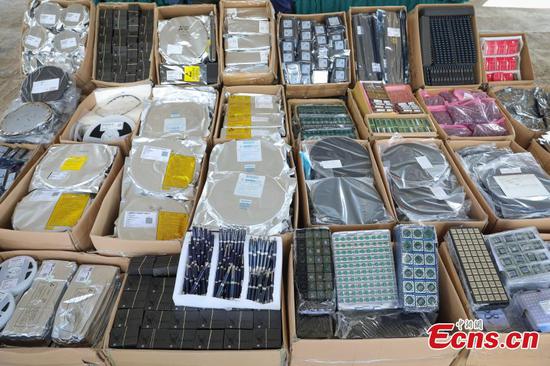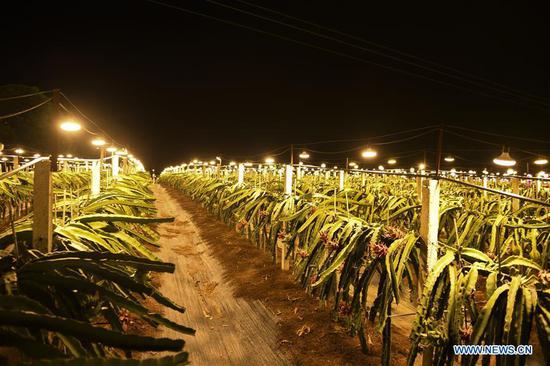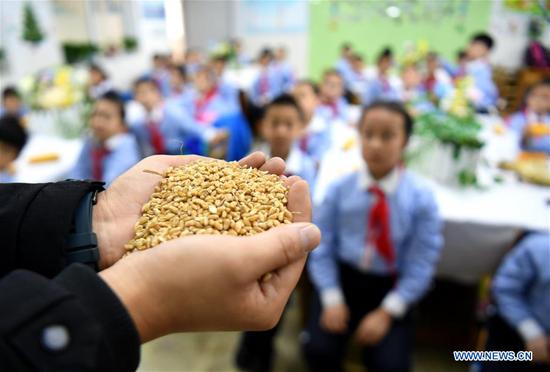Although still-nascent, plant-based meat with the familiar taste, texture and mouthfeel as people recognize from animal flesh is making its way into Chinese people's life, providing consumers with more choices.
Chinese ham producer Jinzi said Wednesday that it is capable of producing plant-based meat with similar flavor and nutrients as real meat.
Located in the city of Jinhua in east China's Zhejiang Province, dubbed "the hometown of Chinese ham," the meat processor has been working with U.S.-based DuPont Nutrition & Biosciences on meat alternatives.
Artificial patties are not a new idea. Mark Post, a Dutch biologist at Maastricht University, cultured beef from cow stem cells years ago. Unlike lab-grown meat based on cell culture, plant-based meat is made by extracting plant proteins from soybeans, peas, wheat and other vegetables and grains.
Last month, a Beijing-based food company put its mooncakes stuffed with synthetic meat on sale on Taobao a week before the Mid-Autumn Festival and sold over half of its limited 3,000 boxes of cakes in less than three days.
Jinzi's faux meat was claimed to be cholesterol-free and contain no animal hormones or antibiotics, according to Ma Xiaozhong, the company CTO and chief engineer, who also noted that the company has obtained a food production license for the new product.
As of Wednesday, Jinzi had sold out 1,000 beef-flavored mock patty packs for 118 yuan (about 16.7 U.S. dollars) each on Alibaba's Tmall online shopping platform in a nine-day presale.
"Now I can enjoy delicious beef pie without worrying about gaining weight," said a buyer in the online comment. "And it tastes good."
According to Ma, the partnership with DuPont will help the plant-based meat be readily accepted by Chinese consumers, which combines traditional Chinese flavors and advanced processing technology of the U.S. chemical giant.
The emerging of alt-meat has not only provided customers with more choices, but has linked tech startups with traditional meat producers like Hormel and global fast-food chains such as KFC and Subway.
"The year 2019 can be called 'the year of plant-based foods,'" said Cao Jian with DuPont's R&D center in China.
The global plant-based meat market will enjoy an annual compound growth rate of 15 percent to reach 27.9 billion U.S. dollars in 2025, according to consulting firm Markets and Markets.
Jinzi can make five tonnes of plant-based meat products a day and has developed pork-flavored lab-grown patties and meatballs.
"Plant-based meet and traditional meat products are not contrarieties," said Shi Yanjun, founder of the Zhejiang-based meat processor. "There is a bright foreground for the newborn."




















































